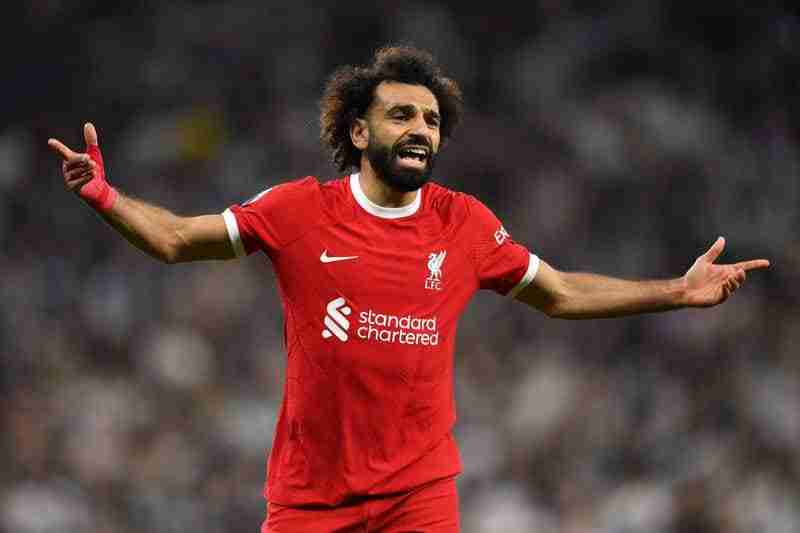Jordanian teenager Abdullah Shelbayh took to center court to play a tennis match in Metz, France, on Wednesday evening, wearing the Palestinian keffiyeh – also known as a hatta – in solidarity with the people of Gaza.
Some saw this as just a gesture on the part of the 19-year-old.
But it is a bold and meaningful message sent at a time when many Arab athletes are trying to navigate a climate of cancel culture, online backlash and potential sanctions for providing support.
As the death toll continues to rise in Gaza, some Arab athletes are using their platforms to raise awareness of the ongoing humanitarian crisis or to speak out against the violence.
My family goes to sleep not knowing if I’m going to wake up tomorrow, if someone is going to break into my apartment
Abdelrahman El Araby, Egyptian swimmer
But not everyone found it easy to express their opinion.
While many praised Shelbayh for what he did on Wednesday, a few tweets on X, formerly Twitter, called him a “terrorist” or called on the ATP to ban him from wearing a headscarf.
When Egyptian swimmer Abdelrahman El Araby pulled off an impressive upset to win gold in the 50m butterfly at a World Cup in Greece last month, he refused to celebrate his feat and revealed he had received death threats since he shared certain messages in favor of Palestine on Instagram.
“People have been attacking me all week because I support Palestine. My family goes to sleep not knowing if I’m going to wake up tomorrow, if someone is going to break into my apartment. And they have to wonder every time I don’t answer a call: Is he just busy or is someone trying to kill him? El Araby said in his post-race interview. “My brothers and sisters are being killed in Palestine right now and I am being threatened simply because this is a cause I stand for. »
As a result, the Israeli Swimming Association sent a letter to the governing body, World Aquatics, urging it to investigate El Araby, who then posted a message on social media saying that nothing justifies the suffering of people innocent, whatever their origin.
“It is disheartening to see a discrepancy in how individuals are allowed to express grief and empathy,” the swimmer wrote. “Israeli athletes, like their Palestinian counterparts, should have the freedom to mourn the suffering of their own people without facing accusations or labels. »
When Tunisian tennis star Ons Jabeur first posted a message calling for peace in Palestine, the Israel Tennis Association (ITA) filed an official complaint against her.
The double Wimbledon finalist said The National she was “surprised” by the ITA’s decision and reiterated her message of peace. Jabeur burst into tears on court after her victory at the WTA Finals last week, saying it was “heartbreaking” to see innocent children dying every day and announcing she would donate part of her prize money to Palestinian aid.
As NBA coach, Gregg Popovich said The National last weektalking about what is happening in Gaza is important because it keeps the issue at the forefront of the news, making it difficult for world leaders to ignore it.
And while fans generally demand that star athletes hold themselves to incredibly high standards and that speaking requests be reasonable, it’s also understandable that some have been less vocal than others.
A tennis player, who is effectively an independent contractor, is in a much more flexible position than a footballer, for example, who is employed and is bound by the rules of his club, as well as the league to which he belongs. .
This browser does not support the video element.
Egyptian and Liverpool footballer Mohamed Salah, the most prominent Arab athlete in world sport, was heavily criticized by his local fans for not initially posting anything about Palestine on social media. It was later revealed that he had made a considerable donation to help Gaza, before share a video online in which he called for an end to the “massacres” and said humanitarian aid should be allowed into Gaza immediately.
Even then, Salah received some backlash from those who felt his message was “too neutral” and should have been stronger.
Mohamed Elneny, of Egypt and Arsenal, who was asked two years ago by his club to consider the “wider implications” of a pro-Palestinian message he posted that upset one of the team’s sponsors, changed his profile picture on all his social media accounts last month. to reflect an image of the Palestinian flag in front of the Al Aqsa Mosque, opting for a more subtle approach instead of sharing a written message or video.
This browser does not support the video element.
The Premier League released a statement saying the league “is shocked and saddened by the escalating crisis in Israel and Gaza, and strongly condemns the horrific and brutal acts of violence against innocent civilians.” A minute of silence was observed before the matches organized from October 21 to 23 “as a tribute to all those concerned”.
Yet it is clear that Premier League football players do not feel too comfortable openly sharing their views on the conflict, given the limited nature of communication on the subject from most big Arab stars of the league. The consequences of saying something that can so easily be turned into something else are simply too serious.
People quickly equated the horror over the thousands of deaths in Gaza with pro-terrorist or anti-Semitic sentiment. It is therefore understandable that a professional athlete with a large international following would choose to avoid falling into this trap by instead remaining silent.
But as Salah said in his video, “humanity must prevail” and we should be able to live in a world where calling for peace would not get us into trouble.
Updated: November 10, 2023, 6:00 p.m.

